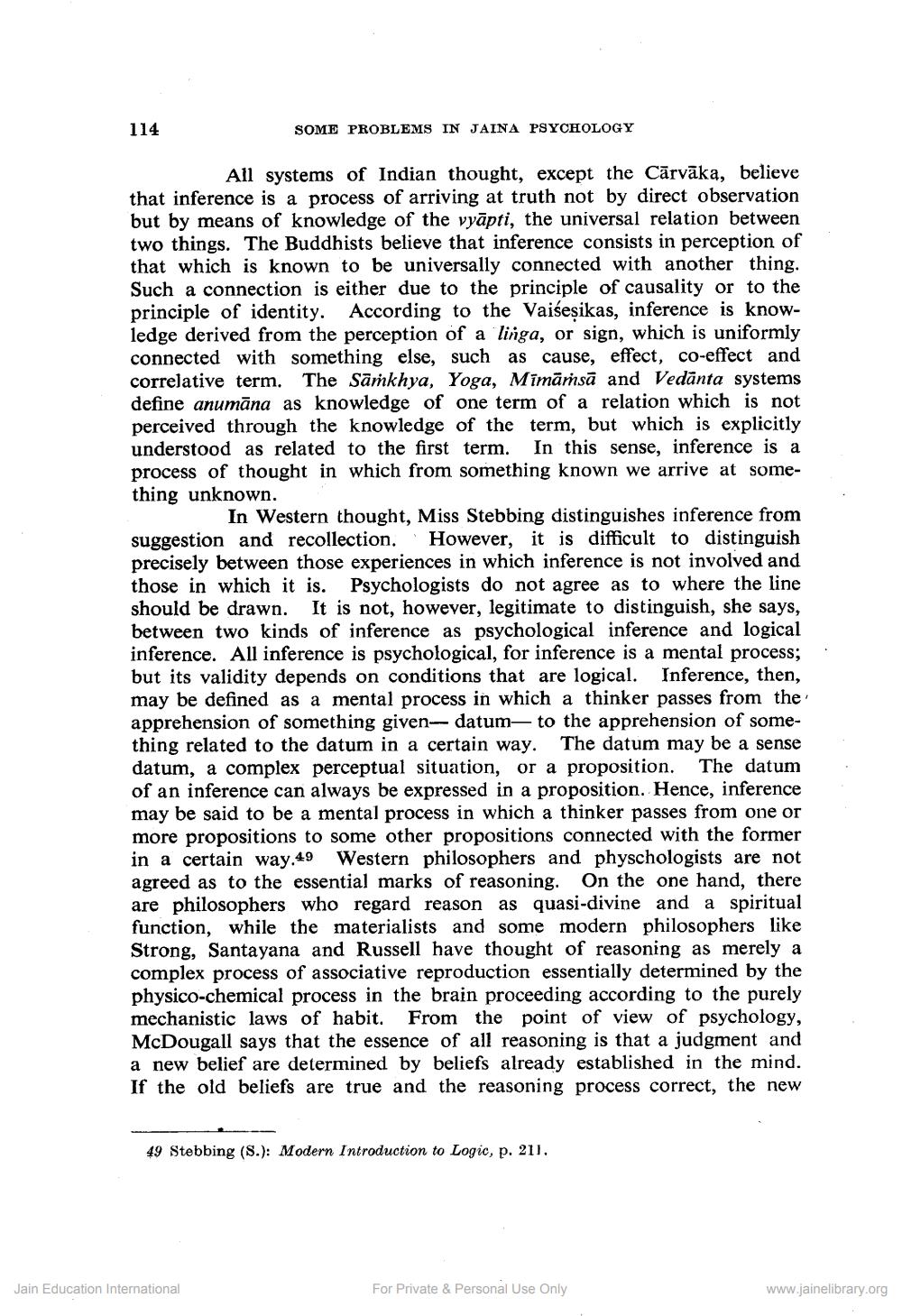________________
114
SOME PROBLEMS IN JAINA PSYCHOLOGY
All systems of Indian thought, except the Cārvāka, believe that inference is a process of arriving at truth not by direct observation but by means of knowledge of the vyāpti, the universal relation between two things. The Buddhists believe that inference consists in perception of that which is known to be universally connected with another thing. Such a connection is either due to the principle of causality or to the principle of identity. According to the Vaišeşikas, inference is knowledge derived from the perception of a linga, or sign, which is uniformly connected with something else, such as cause, effect, co-effect and correlative term. The Sāṁkhya, Yoga, Mimāṁsā and Vedānta systems define anumāna as knowledge of one term of a relation which is not perceived through the knowledge of the term, but which is explicitly understood as related to the first term. In this sense, inference is a process of thought in which from something known we arrive at something unknown.
In Western thought, Miss Stebbing distinguishes inference from suggestion and recollection. However, it is difficult to distinguish precisely between those experiences in which inference is not involved and those in which it is. Psychologists do not agree as to where the line should be drawn. It is not, however, legitimate to distinguish, she says, between two kinds of inference as psychological inference and logical inference. All inference is psychological, for inference is a mental process; but its validity depends on conditions that are logical. Inference, then, may be defined as a mental process in which a thinker passes from the apprehension of something given- datum- to the apprehension of something related to the datum in a certain way. The datum may be a sense datum, a complex perceptual situation, or a proposition. The datum of an inference can always be expressed in a proposition. Hence, inference may be said to be a mental process in which a thinker passes from one or more propositions to some other propositions connected with the former in a certain way.49 Western philosophers and physchologists are not agreed as to the essential marks of reasoning. On the one hand, there are philosophers who regard reason as quasi-divine and a spiritual function, while the materialists and some modern philosophers like Strong, Santayana and Russell have thought of reasoning as merely a complex process of associative reproduction essentially determined by the physico-chemical process in the brain proceeding according to the purely mechanistic laws of habit. From the point of view of psychology, McDougall says that the essence of all reasoning is that a judgment and a new belief are determined by beliefs already established in the mind. If the old beliefs are true and the reasoning process correct, the new
49 Stebbing (S.): Modern Introduction to Logic, p. 211.
Jain Education International
For Private & Personal Use Only
www.jainelibrary.org




